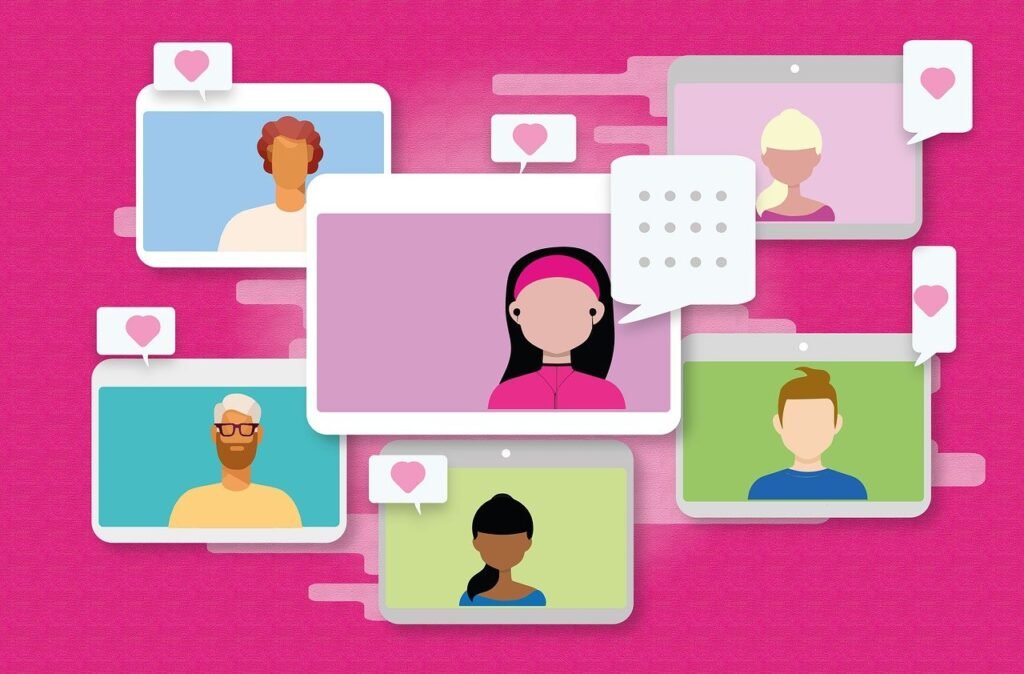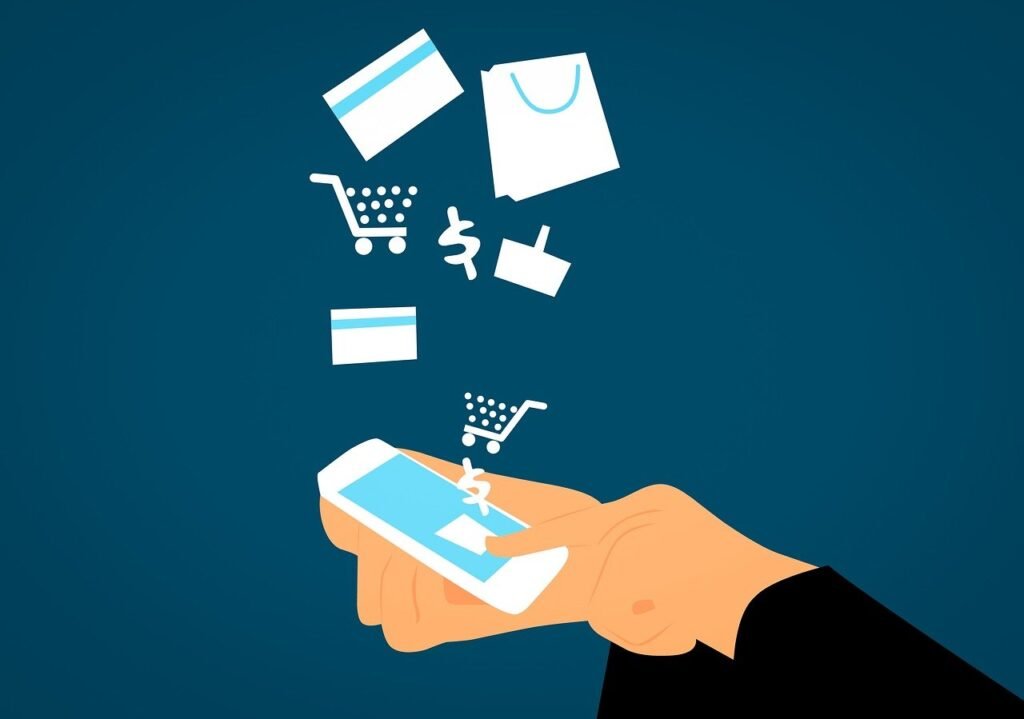- 1. Why Is Event Marketing Essential to Marketers' Success?
- 2. How Does Event Marketing Compare to Other Marketing Channels in ROI?
- 3. What Percentage of Marketers Use Event Marketing to Generate Sales?
- 4. How Valuable Are Live Events for In-Person Connections?
- 5. Are Marketers Increasing Their Event Marketing Budgets in 2024?
- 6. Will Hybrid Events Become the New Norm?
- 7. How Effective Are Live Events in Generating Leads for B2B Marketers?
- 8. How Do Event Organizers Measure Success?
- 9. How Effective Is Event Marketing in Achieving Business Goals?
- 10. Are Event Marketers Planning to Maintain or Grow Their Strategies?
- 11. How Critical Are Events to Content Marketing Strategies?
- 12. What Opportunities Do Live Events Offer for Meaningful Interactions?
- 13. Are Businesses Planning to Host More Virtual Events?
- 14. How Does Integrating Event Data with CRM Systems Benefit Marketers?
- 15. What Impact Does Technology Have on Event Success?
- 16. How Important Is Data Analytics for Improving Event Performance?
- 17. What Do Event Attendees Expect from Mobile Apps?
- 18. How Will AI Influence Event Marketing in the Future?
- 19. How Do Event Organizers Drive Event Registrations?
- 20. What Is the Biggest Benefit of Event Marketing?
- 21. How Do Events Lead to Business Opportunities?
- 22. What Role Does Email Marketing Play in Event Promotion?
- 23. How Important Is Personalization in Event Marketing?
- 24. How Does Event Marketing Help Build Customer Relationships?
- 25. How Do Event Marketers Boost Engagement with Content Marketing?
- 26. How Likely Are Event Attendees to Make a Purchase?
- 27. How Significant Is Sponsorship as a Revenue Source for Events?
- 28. How Does Virtual Reality Enhance Attendee Engagement?
- 29. Are Event Marketers Increasing Their Use of Video Content?
- 30. How Do Events Improve Understanding of Products or Services?
- Conclusion
- We got all the latest Marketing Stats here:
In today’s digital age, event marketing has evolved significantly. It’s no longer just about setting up booths or hosting grand parties; it’s about creating meaningful experiences that engage your audience both online and offline. Whether you’re a seasoned event marketer or just starting, understanding the latest trends and statistics is crucial for planning successful events. This article will dive into the key statistics that will shape event marketing in 2024, providing valuable insights to help you stay ahead of the curve.
1. Why Is Event Marketing Essential to Marketers’ Success?

83% of marketers believe that event marketing is essential to their success. This statistic highlights the importance of events in a comprehensive marketing strategy. Events offer unique opportunities to engage with your audience on a personal level, build brand awareness, and generate leads.
The Role of Events in Marketing Strategies
Events provide a platform for direct interaction with potential customers, which is invaluable in building trust and loyalty. Whether it’s a trade show, conference, or virtual webinar, events allow for real-time engagement and feedback.
This direct communication can lead to deeper insights into customer needs and preferences, helping you tailor your marketing strategies more effectively.
2. How Does Event Marketing Compare to Other Marketing Channels in ROI?
52% of business leaders say event marketing drives more ROI than other marketing channels. This statistic underscores the effectiveness of events in generating a significant return on investment. Unlike other marketing efforts, events create memorable experiences that can lead to long-lasting customer relationships and brand loyalty.
Maximizing ROI from Events
To maximize ROI from your events, focus on pre-event promotions, engaging event content, and post-event follow-ups. Use data analytics to track attendee engagement and identify the most impactful elements of your event.
Personalizing attendee experiences and offering exclusive content or offers can also enhance the overall value of your events.
3. What Percentage of Marketers Use Event Marketing to Generate Sales?
79% of marketers use event marketing to generate sales. Events are not just about networking; they are a powerful tool for driving sales. By showcasing your products or services in a dynamic and interactive environment, you can directly influence purchasing decisions.
Strategies for Generating Sales at Events
To effectively generate sales at events, create a compelling booth or virtual presence that attracts attendees. Offer live demonstrations, free trials, or exclusive event-only discounts to entice potential buyers. Ensure your sales team is well-prepared to engage with attendees, answer questions, and close deals on the spot.
4. How Valuable Are Live Events for In-Person Connections?
95% of marketers agree that live events provide attendees with a valuable opportunity to form in-person connections in an increasingly digital world. Despite the rise of digital marketing, face-to-face interactions remain crucial for building strong, personal relationships.
Building Connections Through Live Events
To make the most of live events, create networking opportunities such as breakout sessions, roundtable discussions, and social mixers. Encourage attendees to share their experiences and connect with each other through event-specific hashtags and social media groups.
Providing a platform for meaningful interactions can enhance the overall event experience and foster lasting connections.
5. Are Marketers Increasing Their Event Marketing Budgets in 2024?
63% of marketers plan to increase their event marketing budgets in 2024. This indicates a growing recognition of the value that events bring to marketing strategies. As events continue to deliver high ROI and engagement, businesses are willing to invest more in their planning and execution.
Allocating Event Marketing Budgets Wisely
When increasing your event marketing budget, prioritize spending on elements that enhance attendee experience and engagement. Invest in high-quality content, innovative technologies, and effective promotional strategies. Regularly evaluate the performance of your events to ensure that your budget is being used efficiently and effectively.
6. Will Hybrid Events Become the New Norm?
85% of event marketers believe that hybrid events will become the new norm. Hybrid events, which combine in-person and virtual elements, offer greater flexibility and reach. They allow attendees to participate in the way that suits them best, whether that’s in person or online.
Planning Successful Hybrid Events
To plan successful hybrid events, ensure that both in-person and virtual attendees have engaging and valuable experiences. Invest in reliable technology for live streaming and interactive virtual sessions.
Offer opportunities for virtual attendees to network and participate in discussions. Providing high-quality content and seamless integration between online and offline elements is key to the success of hybrid events.
7. How Effective Are Live Events in Generating Leads for B2B Marketers?
68% of B2B marketers believe that live events help generate the most leads. Live events provide a unique opportunity to showcase products, build relationships, and capture qualified leads in a targeted environment.
Lead Generation Strategies at Live Events
To generate leads at live events, focus on creating engaging and informative presentations that address the needs and interests of your target audience.
Use lead capture tools such as digital forms, QR codes, and interactive touchpoints to collect attendee information. Follow up promptly with personalized emails and offers to nurture these leads into potential customers.
8. How Do Event Organizers Measure Success?
91% of event organizers measure the success of events based on attendee satisfaction. Attendee satisfaction is a key indicator of an event’s overall success. Satisfied attendees are more likely to become loyal customers and advocates for your brand.
Measuring and Enhancing Attendee Satisfaction
To measure attendee satisfaction, use surveys, feedback forms, and social media monitoring to gather insights. Analyze this data to identify areas for improvement and implement changes in future events. Focus on delivering high-quality content, seamless logistics, and excellent customer service to enhance attendee satisfaction.
9. How Effective Is Event Marketing in Achieving Business Goals?
47% of marketers believe that event marketing is the most effective channel for achieving business goals. Events provide a versatile platform for achieving various business objectives, from brand awareness to lead generation and customer engagement.
Aligning Events with Business Goals
To ensure your events are effective in achieving business goals, align your event strategy with your overall marketing objectives. Define clear goals for each event, such as increasing brand awareness, generating leads, or driving sales. Use data analytics to track progress and measure the impact of your events on these goals.
10. Are Event Marketers Planning to Maintain or Grow Their Strategies?

81% of event marketers plan to maintain or grow their event marketing strategies in the coming year. This commitment to event marketing reflects its continued importance in driving business success.
Growing Your Event Marketing Strategy
To grow your event marketing strategy, explore new formats and technologies that can enhance attendee engagement. Consider hosting a mix of live, virtual, and hybrid events to reach a broader audience. Continuously gather and analyze data to refine your strategies and improve the effectiveness of your events.
11. How Critical Are Events to Content Marketing Strategies?
72% of marketers believe that events are critical to their content marketing strategy. Events provide a wealth of content opportunities that can be repurposed and leveraged across multiple channels.
Integrating Events into Content Marketing
To integrate events into your content marketing strategy, capture and repurpose event content such as keynote speeches, panel discussions, and attendee interviews.
Share this content through blog posts, social media, and email newsletters. Additionally, create pre-event content to generate buzz and post-event content to maintain engagement and extend the event’s impact.
12. What Opportunities Do Live Events Offer for Meaningful Interactions?
80% of attendees believe that live events provide opportunities for meaningful interactions. These interactions are crucial for building relationships, understanding customer needs, and fostering brand loyalty.
Facilitating Meaningful Interactions at Events
To facilitate meaningful interactions at live events, design your event layout to encourage networking and conversations. Provide dedicated networking areas, interactive sessions, and informal social events. Encourage attendees to engage through event apps, social media, and discussion forums, creating a community around your event.
13. Are Businesses Planning to Host More Virtual Events?
78% of businesses plan to host more virtual events in 2024 compared to previous years. Virtual events offer a cost-effective and accessible way to reach a global audience without the logistical challenges of in-person events.
Best Practices for Hosting Virtual Events
To host successful virtual events, invest in a reliable virtual event platform that supports live streaming, interactive sessions, and networking features.
Engage attendees with high-quality content, interactive elements like polls and Q&A sessions, and opportunities for virtual networking. Ensure your virtual event is well-promoted and easy to access, and provide technical support to help attendees navigate the platform.
14. How Does Integrating Event Data with CRM Systems Benefit Marketers?
49% of event marketers report that integrating event data with their CRM systems has improved their overall marketing efforts. This integration provides valuable insights into attendee behavior and preferences, helping to personalize marketing and improve lead nurturing.
Benefits of Integrating Event Data with CRM
Integrating event data with your CRM system allows you to track and analyze attendee interactions, follow up with personalized messages, and nurture leads more effectively.
Use this data to segment your audience, tailor your marketing campaigns, and measure the impact of your events on lead generation and sales. This holistic view of your customers enhances your ability to deliver targeted and relevant content.
15. What Impact Does Technology Have on Event Success?
86% of marketers agree that technology can have a major positive impact on the success of their events. From event management software to virtual platforms, technology plays a crucial role in planning, executing, and enhancing events.
Leveraging Technology for Event Success
To leverage technology for event success, use event management software to streamline planning and logistics, and virtual event platforms to reach a wider audience.
Implement tools for attendee engagement, such as mobile event apps, live polling, and social media integration. Use data analytics to track and analyze event performance, identify trends, and make data-driven decisions to improve future events.

Related: Check out our free tools:

16. How Important Is Data Analytics for Improving Event Performance?
71% of event marketers say that data analytics is crucial for improving event performance. Data analytics provides insights into attendee behavior, event ROI, and areas for improvement, helping you optimize your events.
Utilizing Data Analytics for Event Optimization
To utilize data analytics effectively, collect data from multiple sources, including registration forms, event apps, and feedback surveys. Analyze this data to understand attendee demographics, engagement levels, and satisfaction.
Use these insights to refine your event strategies, personalize attendee experiences, and improve overall event performance. Regularly review and update your data analytics processes to stay ahead of trends and ensure continuous improvement.
17. What Do Event Attendees Expect from Mobile Apps?
92% of event attendees expect a high-quality mobile app to enhance their event experience. A well-designed event app can provide attendees with easy access to event information, personalized schedules, and networking opportunities.
Creating an Effective Event Mobile App
To create an effective event mobile app, ensure it offers essential features such as event schedules, speaker bios, interactive maps, and social media integration. Provide personalized content and notifications to keep attendees engaged and informed.
Include networking features like attendee profiles, messaging, and social feeds to facilitate connections. Test the app thoroughly before the event to ensure a smooth user experience.
18. How Will AI Influence Event Marketing in the Future?
66% of marketers believe that AI will play a key role in event marketing in the future. AI can enhance event planning, personalization, and attendee engagement, making events more efficient and impactful.
Implementing AI in Event Marketing
To implement AI in event marketing, use AI-powered tools for data analysis, attendee segmentation, and personalized content recommendations. Chatbots can provide instant support and answer attendee questions in real-time.
AI can also enhance networking by matching attendees with similar interests and facilitating introductions. By leveraging AI, you can create more personalized and engaging event experiences.
19. How Do Event Organizers Drive Event Registrations?
58% of event organizers use social media to drive event registrations. Social media is a powerful tool for promoting events, engaging with potential attendees, and driving registrations.
Using Social Media to Promote Events
To effectively use social media for event promotion, create engaging content that highlights the value and unique aspects of your event. Use targeted ads to reach specific audiences and encourage early registrations with limited-time offers.
Leverage influencers and industry partners to amplify your reach. Engage with your audience by responding to comments, sharing updates, and creating interactive content like polls and live videos.
20. What Is the Biggest Benefit of Event Marketing?

83% of marketers consider networking opportunities to be the biggest benefit of event marketing. Events provide a unique platform for attendees to connect, share ideas, and build relationships that can lead to business opportunities.
Maximizing Networking Opportunities at Events
To maximize networking opportunities, design your event layout to encourage interactions, with dedicated networking areas and breaks. Use event apps to facilitate connections and schedule meetings.
Organize networking activities such as roundtable discussions, speed networking sessions, and social events. Encourage attendees to engage with each other through interactive sessions and social media.
21. How Do Events Lead to Business Opportunities?
69% of businesses say that their events have led to significant business opportunities. Events are a powerful way to showcase your brand, build relationships, and open doors to new business ventures.
Creating Business Opportunities Through Events
To create business opportunities through events, focus on attracting the right audience. Use targeted marketing to reach decision-makers and potential partners. Offer valuable content and experiences that showcase your expertise and products.
Facilitate networking and discussions that can lead to collaborations and deals. Follow up with attendees after the event to nurture these connections and explore potential opportunities.
22. What Role Does Email Marketing Play in Event Promotion?
74% of event marketers use email marketing as their primary channel for event promotion. Email marketing is an effective way to reach a targeted audience, provide detailed information, and drive registrations.
Effective Email Marketing for Events
To run effective email marketing campaigns for events, start by building a segmented email list that includes potential attendees, past participants, and industry contacts. Craft compelling subject lines and personalized messages that highlight the benefits of attending your event.
Use a series of emails to provide updates, reminders, and exclusive offers. Include clear calls-to-action and easy registration links. Track email performance and optimize your strategy based on open rates, click-through rates, and conversions.
23. How Important Is Personalization in Event Marketing?
88% of event marketers believe that personalization is key to event success. Personalized experiences can enhance attendee satisfaction, engagement, and loyalty.
Implementing Personalization in Events
To implement personalization, collect data on attendee preferences and behaviors. Use this data to tailor your communications, content, and experiences to individual attendees.
Offer personalized schedules, recommendations, and networking opportunities through event apps. Send personalized follow-up messages and offers after the event to continue the engagement. By making attendees feel valued and understood, you can create more impactful and memorable events.
24. How Does Event Marketing Help Build Customer Relationships?
55% of businesses say that event marketing helps them build strong customer relationships. Events provide a unique opportunity to connect with customers on a personal level, understand their needs, and build trust.
Building Customer Relationships Through Events
To build strong customer relationships, focus on creating engaging and interactive experiences at your events. Offer opportunities for direct communication and feedback through Q&A sessions, surveys, and informal discussions. Provide value through educational content, exclusive offers, and personalized attention.
Follow up with attendees after the event to maintain the connection and address any questions or concerns. By showing that you care about your customers, you can foster loyalty and long-term relationships.
25. How Do Event Marketers Boost Engagement with Content Marketing?
77% of event marketers use content marketing to boost event engagement. Content marketing can attract attendees, keep them engaged during the event, and continue the conversation afterward.
Leveraging Content Marketing for Events
To leverage content marketing, create a variety of content formats, such as blog posts, videos, infographics, and social media updates, to promote your event and engage your audience. Share behind-the-scenes content, speaker interviews, and attendee testimonials to build excitement.
During the event, live-tweet sessions, post updates, and share highlights to keep attendees engaged. After the event, repurpose content from the event to extend its reach and maintain engagement. Use analytics to track content performance and refine your strategy.
26. How Likely Are Event Attendees to Make a Purchase?

64% of event attendees say that they are more likely to buy a product or service after attending a branded event. Events provide an opportunity to showcase your products and services in a hands-on, interactive environment, increasing the likelihood of a purchase.
Driving Purchases Through Events
To drive purchases, create immersive and engaging experiences that allow attendees to interact with your products or services. Offer live demonstrations, free trials, and exclusive event-only discounts.
Provide clear information and easy ways for attendees to make a purchase, whether through a dedicated sales team or online platforms. Follow up with attendees after the event to remind them of the offers and encourage conversions.
27. How Significant Is Sponsorship as a Revenue Source for Events?
60% of event organizers report that sponsorship is a significant revenue source for their events. Sponsorships can provide the financial support needed to enhance event quality and attendee experience.
Attracting and Retaining Sponsors
To attract and retain sponsors, offer a range of sponsorship packages that provide value and visibility. Highlight the benefits of sponsorship, such as brand exposure, access to a targeted audience, and opportunities for engagement. Provide detailed metrics and reports to demonstrate the ROI of sponsorship.
Build strong relationships with sponsors by understanding their goals and working collaboratively to achieve them. Ensure that sponsors are integrated seamlessly into the event and that their presence enhances the attendee experience.
28. How Does Virtual Reality Enhance Attendee Engagement?
89% of event marketers say that the use of virtual reality (VR) enhances attendee engagement. VR offers immersive and interactive experiences that can captivate attendees and provide unique opportunities for learning and exploration.
Incorporating VR into Events
To incorporate VR into your events, identify areas where immersive experiences can add value, such as product demonstrations, virtual tours, or interactive training sessions. Invest in high-quality VR equipment and content to ensure a seamless experience.
Provide guidance and support to help attendees navigate the VR experience. Use VR to create memorable and impactful moments that enhance overall event engagement and satisfaction.
29. Are Event Marketers Increasing Their Use of Video Content?
57% of event marketers plan to increase their use of video content in event marketing. Video content is a versatile and engaging medium that can enhance event promotion, engagement, and post-event follow-up.
Utilizing Video Content for Events
To utilize video content effectively, create a variety of videos, such as event teasers, speaker highlights, and attendee testimonials, to promote your event. Live stream key sessions to reach a broader audience and increase engagement.
Use video to capture highlights and share them on social media and your website. After the event, repurpose video content into shorter clips, summaries, and educational pieces to maintain engagement and extend the event’s impact.
30. How Do Events Improve Understanding of Products or Services?
84% of event attendees say that attending an event improves their understanding of a product or service. Events provide an opportunity for hands-on demonstrations, in-depth explanations, and direct interactions with experts.
Enhancing Product Understanding at Events
To enhance product understanding, offer detailed demonstrations, workshops, and Q&A sessions that allow attendees to see your product or service in action. Provide clear and comprehensive information through brochures, presentations, and interactive displays.
Ensure that knowledgeable staff are available to answer questions and provide personalized guidance. By creating an informative and interactive environment, you can help attendees gain a deeper understanding of your offerings and their benefits.
Conclusion
Event marketing continues to evolve in the digital age, offering unique opportunities to engage with your audience and achieve business goals. By understanding and leveraging the key statistics and trends outlined in this article, you can optimize your event marketing strategies and drive success in 2024. Whether through live, virtual, or hybrid events, focusing on attendee engagement, personalization, and technology integration will help you create impactful and memorable experiences that deliver lasting value.
We got all the latest Marketing Stats here:
READ NEXT:
- 21+ Ways Chatbots can Skyrocket Lead Generation and Conversions
- 15 Best AI Marketing Tools to Elevate Your Business Growth
- How to Do Competitor Analysis for SEO: A Definitive Guide
- Multilingual SEO: How to Target Multiple Geographies
- 15 Best Sales Acceleration Tools to Skyrocket Your Sales!






















Comments are closed.